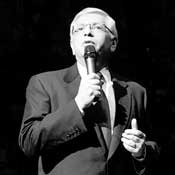On July 1, 2011, the collective bargaining agreement between the National Basketball Association owners and the 450 NBA players expired. Unhappy with the terms of the CBA, the owners instituted a lockout instead of extending it.
A lockout is a tactic used by owners to convince players to agree to a new CBA, which governs "all aspects of players' employment." During a lockout, players do not receive any of their basic employment benefits, such as salaries and health care. They are also unable to enjoy the luxuries of being a professional athlete, including use of team facilities, equipment and the like.
The owners resorted to a lockout after 18 months of talks failed to produce a new CBA. This is the fourth lockout since the inception of the NBA. The shortest was for two hours in '96. The longest was six months during the 1998-1999 season, when 464 games were cancelled. The NBA only played fifty games that season.
With this lockout, the owners started a fight. The owners claim that they have suffered losses in excess of $300 million since last season, and that only eight of the 30 NBA teams are actually making money, with the Knicks being the richest, followed by the Lakers, Bulls, Celtics, Rockets, Mavericks, Heat and Suns.
The players dispute this claim with three arguments:
First, they argue that the so-called losses are a product of the owners' preferred accounting method. This is the "it depends on how you calculate it" argument, and is probably the players' weakest position.
The second argument is that if the owners have suffered losses, it is due to their "own mismanaged spending, overpaid staff, or (bad) decisions on rosters and personnel."
The third and strongest argument is that "if teams shared local television revenue ... fewer (teams) would be in financial trouble." This is the "revenue sharing" argument. The NFL and Major League Baseball exercise revenue sharing successfully, for the most part.
What's on the Table?
The owners want the players to accept a reduction in their basketball-related income, or BRI, included in their salaries and set at 57 percent in the expired agreement. BRI is revenue from tickets, concessions, merchandise and the like. They want a hard salary cap like the NFL's and fewer guaranteed contracts. They're also debating less contentious items such as the drug policy, conduct and discipline rules, and pensions. Reportedly, they have reached an agreement regarding an "amnesty clause," which allows teams to cancel unwanted contracts.
Negotiating through the National Basketball Player's Association, players agreed to reduce their BRI to about 53 percent or half a billion dollars over five years going from players to owners.
The owners rejected the offer. They wanted a reduction to 47 percent, which reportedly would amount to $8 billion less than what the players received under the old CBA. Owners proposed a 50/50 split in BRI; however, the players are not going that low. Their most recent counteroffer was 52.5 percent, which reportedly amounts to $1.5 billion. On Nov. 6, the owners offered 51 percent of BRI to players with intentions to reduce that amount to 47 percent if players do not accept the offer by Nov. 9.
The players consistently refuse to allow a hard salary cap, which they say would lower their salaries. The owners lightened their stance on the cap, but players are concerned that owners will institute an enormous luxury tax (a fee assessed against a team for going above the soft cap), which would act as a hard cap, deterring owners from spending big bucks on major talent. The soft cap allows teams to exceed it through certain exceptions and loopholes, like the luxury tax.
Reportedly, owners have reached agreement amongst themselves as it relates to revenue sharing. The BRI issue is far from resolved, however, and consequently, NBA Commissioner David Stern cancelled all November games. When he cancelled the games in late October, Stern told the media that as the lockout continues, the owners' proposals might now get even harsher.
The players defend themselves by negotiating a new CBA. Meanwhile, an unfair labor-practices charge that they filed with the National Labor Relations Board in May—alleging that the owners refuse to bargain in good faith—is pending review.
Should negotiations prove ineffective, players may launch their second defense: decertify as a union. The NBPA will then no longer represent the players, who will file a class-action antitrust lawsuit against the NBA.
As players and owners fight over millions and billions, the NBA's supporting cast—ticket takers, cashiers, security guards and the like—pray for a swift resolution so that they may resume employment and be able afford Christmas presents for their children.



Comments
Use the comment form below to begin a discussion about this content.